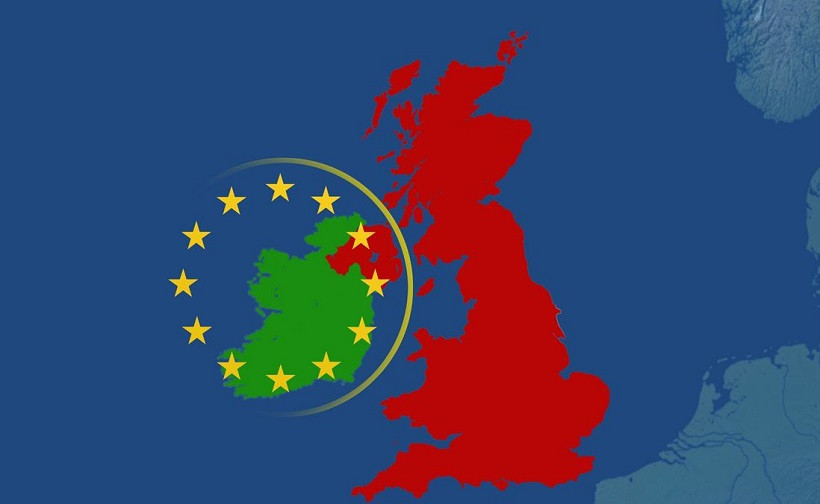Today's champion in the foreign exchange market is the pound, which has been strengthening throughout the market during the day - both in pairs with the dollar and in the main cross-pairs. It is enough to look at such crosses as GBP/JPY or EUR/GBP to come to the obvious conclusion that the pound was in high demand today. Such price dynamics were caused by both economic and political factors. The block of macroeconomic reports of a key nature, published this week, preserved the "hawkish" hopes of traders. Almost all components of the releases were released either at the forecast level or in the green zone. As for the news of a political nature, there are also positive (for the pound) trends. As a result, due to a combination of fundamental factors, the GBP/USD pair updated a three-week high today, marking 1.3734 (despite the fact that the pair was trading at the base of the 34th figure at the end of September).

So, let's start with the economy. On Tuesday, data on the growth of the British labor market were published, yesterday - data on GDP growth. Thus, the British economy in monthly terms got out of the negative area and showed growth of up to 0.4% (with growth forecast to 0.5%). In quarterly terms, a small shortfall was also recorded – 2.9% with a three percent forecast. But the indicators of industrial production were pleasantly surprised – with the forecast of growth up to 0.2% (m/m), the indicator increased to 0.8%. On an annualized basis, positive dynamics was also recorded (3.8% with growth forecast to 3.1%). A similar situation has developed in the processing industry: with the forecast of a decline to -0.1%, the volume of production increased by 0.5%. In the construction sector, both indicators also came out in the green zone – both in annual and monthly terms. But in the service sector, despite the weakening of quarantine, the indicators could not reach the forecast levels.
The British labor market also did not disappoint: the unemployment rate fell to 4.5% (the indicator has been consistently decreasing for eight months), and the number of applications for unemployment benefits decreased by 50,000. Salaries were also pleased: the level of average earnings increased by 7.2% (including bonuses) and by 6.0% – without them.
In general, good macroeconomic reports contributed to the growth of the national currency, especially against the background of speculation about a possible increase in the interest rate next year. But it should be noted here that the British reports come out with a great delay: for example, now we are operating with data as much as August. Since then, there have been quite a few events (primarily related to the pandemic) that may affect the determination of the Bank of England.
For example, just yesterday, the representative of the central bank, Silvana Tenreyro, said that an increase in the interest rate to curb temporary price increases "may cause certain problems." In her opinion, the increase in inflation is largely due to temporary supply disruptions due to "coronavirus imbalances" around the world. It should also be recalled here that at the last meeting, the BoE made it clear that in the foreseeable future it intends to move towards normalization of monetary policy, followed by tightening of its parameters (thereby repeating the trajectory of the Federal Reserve). But at the same time, the central bank did not indicate any deadlines regarding the curtailment of incentives and (especially) the first rate hike. The figures published this week fit into the outline of this scenario, but are not capable of provoking an increase in hawkish mood. Therefore, the pound reacted to the aforementioned publications with a very moderate growth.
Political factors, in turn, have a brighter (but at the same time more short-term) impact on the pound. Especially if it concerns the "echoes of Brexit". So, today it became known that Brussels has made concessions to London on the regime for the import of goods to Northern Ireland. According to preliminary estimates, this may lead to the cancellation of about 80% of inspections. According to The Guardian, the relevant proposals were voiced by European Commissioner Maros Sefcovic, who is now responsible for Brexit.
Let me remind you that we are talking about a long-running conflict over the protocol on Northern Ireland (which is part of the agreement on Britain's withdrawal from the European Union). The reason for the conflict was London's earlier unilateral decision to postpone the implementation of the agreements on the Northern Ireland issue. Brussels accuses the British of making unauthorized amendments to the Agreement, which was concluded the year before last. London has unilaterally extended the transition period for British suppliers of some products and goods to Northern Ireland. In response, the European Commission launched a legal procedure against Britain. Theoretically, this political dispute can end with a trial in a Luxembourg court, with all the consequences that follow from this. But the parties continue to move in a diplomatic direction. And according to a number of experts, today's EU proposal is a "serious step forward", although in exchange for these concessions, Britain wants the control points to work "properly" and European officials to have access to real-time data on inspections. These demands were initially rejected by London, but, according to representatives of the European Commission, "the EU still hopes for the realism of the UK."

Thus, taking into account the prevailing fundamental background, the pair has a "reserve of the corrective move" up to 1.3770 (this is the upper line of the Bollinger Bands indicator, which coincides with the lower border of the Kumo cloud on D1). But, in my opinion, the current correctional growth looks rather shaky, especially since the upward dynamics is due (among other things) to a temporary weakening of the greenback. If, for example, Britain rejects the European Union's proposals tomorrow or the day after tomorrow, the pound will again be under pressure. Or if Tenreyro's dovish opinion is supported by her colleagues. Or as a third option (which does not exclude the rest) - if dollar bulls still remember the latest inflationary release and/or the hawkish minutes of the last Fed meeting. All this suggests that when the corrective impulse fades, one can consider short positions with a medium-term downward target of 1.3605 - this is the Bollinger Bands average line on D1, which coincides with the Tenkan-sen line.
The material has been provided by InstaForex Company - www.instaforex.com